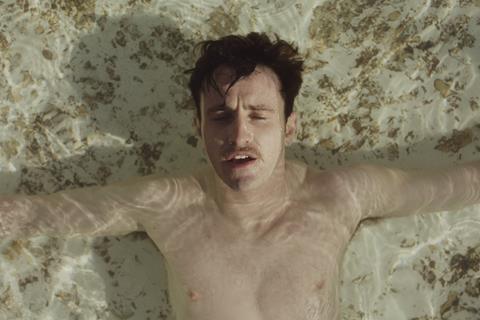Oliver Hermanus’s intense, restrained film is set on the East Coast during the 1920s

Dir: Oliver Hermanus. USA, UK. 2025.127mins
Invented by Thomas Edison, the wax cylinder was the dominant recording technology in the first two decades of the twentieth century. Recording sessions with the apparatus would last no longer than two minutes, and that fragility hovers in the background of Oliver Hermanus’s delicate story of an intense young love between two American music students, played by Paul Mescal and Josh O’Connor, who reconnect on a New England field recording trip in 1919. The trip’s purpose is to capture rural folk songs – but it also serves to rekindle an affair that began two years earlier, when they met at a Boston college.
Reticence is the keynote two riveting central performances
The presence of O’Connor and Mescal will certainly not hurt the reception of this Cannes Competition title, which Mubi is handling for North America with Focus Features/Universal taking charge of international distribution. Hermanus’s 2011 feature Beauty won the Queer Palm when it played in Un Certain Regard and 2022’s Living, his most recent film, received two Academy Award nominations. The History Of Sound seems likely to cement Hermanus as a full member of the commercially-viable arthouse director club.
Hermanus’ first predominantly American-shot and -financed film is taken from a short story by Massachusetts native Ben Shattuck, who also adapts it for the screen. It is more devoted to the life lived after its two male lovers’ all-consuming, necessarily clandestine union, than the affair itself. But it posesses an aching reticence, a period-appropriate vein of quietude, that is beautifully captured in DoP Alexander Dynan’s sombre, painterly framings.
Reticence is also the keynote of The History of Sound’s two riveting central performances. O’Connor’s David echoes his turn in 2023’s La Chimera; the boyish charm and the melancholy smile that acts as emotional cover. Mescal has also done buried passion and trauma – notably in Aftersun and All Of Us Strangers – but here, as singer and voice student Lionel, he makes his silences count at least as much as his lines. Other characters feature only briefly but intensely, as in the case of Molly Price as Lionel’s embittered mother and Hadley Robinson as David’s wife, her existence unknown to Lionel. Chris Cooper plays the older Lionel – now a musicology professor – in a cathartic coda set in 1984.
We also hear Cooper’s gravelly voice-over narrating a brief introductory scene from Lionel’s childhoood in rural Kentucky that underlines both the vocal gifts of this farmer’s son and his musical synaesthesia – an ability to see sounds as colours, or to experience a B-flat note as a bitter taste. Soon enough we’re in Boston in 1917, seeing Lionel and David bond in a smoky university bar over their shared love of folk music.
Traditional songs from the various musical diasporas that formed the American folk tradition – many of them arranged here by contemporary folk musician Sam Amidon – flow into thematic channels that run through the film. Particularly trenchant in this respect is the Irish ballad ‘The Unquiet Grave’, in which a dead wife complains that her lover’s excessive grief is disturbing her rest. The recording scenes, set in the humble homes of families gathered around Edison’s strange apparatus, are captivating. The precariousness of this attempt to capture a sound enhances the beauty of the moment.
It’s a risk to extend Lionel’s story so far beyond that life-changing encounter with Paul, which is over by the halfway point. We see him in Rome in 1923 as a classical choral singer, involved now with a handsome young male cellist; then in Oxford a year later where he is dating a vivacious female student who dotes on him. There is a little drag here, but these sequences serve to communicate a kind of dreamlike quailty in the life of a man who is still only in his twenties. This hardening of a gentle soul is well brought out in the script, and Mescal’s well-honed performance.
Production companies: End Cue, Fat City
International distribution: Focus Features/Universal Pictures / North American distribution: Mubi
Producers: Lisa Ciuffetti, Oliver Hermanus, Andrew Kortschak, Sara Murphy, Theresa Ryan, Zhang Xin
Screenplay: Ben Shattuck, based on his short story of the same name
Cinematography: Alexander Dynan
Production design: Deborah Jensen
Editing: Chris Wyatt
Music: Oliver Coates
Main cast: Paul Mescal, Josh O’Connor, Chris Cooper, Molly Price, Raphael Sbarge, Hadley Robinson, Emma Canning
























